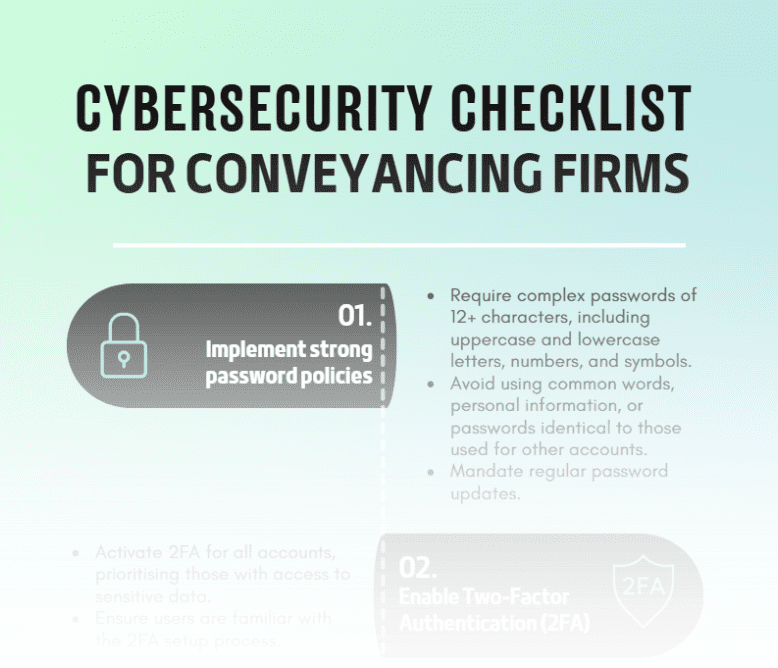Artificial intelligence still sounds like a futuristic concept, but it’s here and it really exists – it’s just a question of what it can do for businesses today and how far it will go. So, what is artificial intelligence (AI)?
Essentially, AI is the term used to describe machines that are programmed to mimic certain human functions, or in other words, carry out the types of tasks that have traditionally required human thought.
More specifically, the brain of AI is a series of pre-programmed algorithms that enable a machine (software) to analyse data, draw insights and even learn new patterns that can improve existing algorithms to deliver better outcomes.
Most Conveyancing firms are using or have plans to use Artificial Intelligence
The difference is software can perform these types of automated tasks much quicker than even the most efficient and intelligent human beings – also without the risk of human error.
So, it’s not surprising that AI is currently having a huge impact on the legal industry, having the potential to make easy work of more routine tasks like document reviews, research and due diligence.
In a study of law firms in London, a hub for the global industry, almost half of firms are already using AI and another 41 per cent have plans to do so in future.
But the big question on the minds of many legal professionals is this: Is AI on track to completely take over from real human lawyers and conveyancers?
The common consensus is simply, no. Research by McKinsey has found that while only 5 per cent of jobs can be entirely automated, it’s estimated that under one-quarter (23 per cent) of the tasks performed by lawyers can be automated.
Freeing up time to deliver improved services
AI is not expected to replace lawyers or conveyancers but instead, it’ll free up their time to focus on higher value non-routine tasks to drive efficiency and deliver improved services to clients.
For example, while AI will never be a substitute for people who can offer accountability, a lawyer who works with AI might have more time to spend on negotiations, offering advice and support to clients and implementing business development strategies.
Studies show that technology leading law firms are significantly more likely to report higher productivity than firms that don’t embrace technology.
Here are some of the ways AI is empowering the legal industry today.
Research and due diligence
AI enabled software can quickly analyse large amounts of documentation in order to determine their relevance to a matter. In practice, this means that lawyers will only have to review documents that algorithms have flagged with uncertainty.
Similarly, legal AI tools can also be used to confirm facts and discover background information to speed up litigation proceedings.
For conveyancers and lawyers, a tool like triSearch is a great example of how automation can assist with everyday due diligence. Using triSearch, you could conduct property and business searches across multiple official registries in only a few seconds.
By using AI in your firm to carry out research and due diligence, you’ll be able to work faster to meet clients’ needs without having to charge them high fees for the extra time you might have otherwise spent.
Predicting possible outcomes
Depending on your area of practice, clients might ask for advice around the possible outcome of making certain decisions in a range of scenarios.
Of course, lawyers have historically turned to their own professional experience and knowledge to make educated judgment calls for their clients.
Now, though, AI is giving lawyers the ability to offer more sturdy advice to clients by combining their own human intuition with the vast analytical power of technology.
For example, unlike a human lawyer, AI can analyse years of legal data to provide precedents and examples of cases which are similar to a modelled scenario.
Reviewing contracts
Reviewing lengthy contracts is an incredibly time-consuming task for lawyers as they meticulously search the text for any terminology or clauses that might have a negative effect on their clients’ interests.
From here, the next step is usually to amend contracts with more favourable terms which will be put forward for negotiation. But of course, this is a rather process-driven task – something that’s ideal for AI to take care of.
There are already a few tools available today that can review contracts (even multiple contracts at a time) for questionable terms while offering suggested amendments.
What’s more, there’s no risk that AI will miss something as a result of simple human error or a touch of fatigue, which could be an incredibly costly error for firms.
Artificial Intelligence Chatbots
Chatbots are becoming increasingly capable of holding human-like conversations when the reality is, you’re simply interacting with a vast database of stored knowledge.
Chatbots can be designed and built to undertake a variety of tasks such as supporting existing customers, answering frequently asked questions, offering secretarial support by directing new leads and queries to the right department and even providing preliminary advice to individuals on basic legal problems.
In fact, some chatbots can offer potential clients fast conveyancing quotes without any human interaction or number crunching required.
Essentially, a chatbot is an effective way to remove some of those very important yet more menial legal or business duties that can detract from your chargeable time working on more complex tasks.
The legal industry is revolutionising the way it operates with new innovative technologies every day. However, there’s no doubt artificially intelligent software isn’t being designed to step on the toes of experienced legal professionals.
Instead, Artificial Intelligence more about thinking with a growth mindset, which means embracing all the ways it can help you and your business do an even better job.






